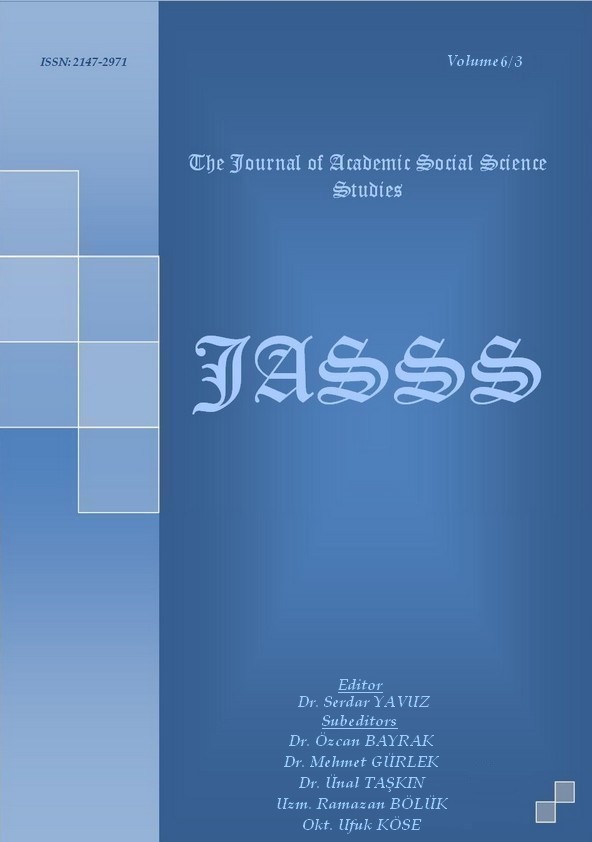Author :
Abstract
Okul öncesi dönemde fen eğitimi faaliyetlerinin ve verimliliğinin artırabilmesi için okul öncesi öğretmenlerinin fen eğitimine karşı tutumlarının olumlu olması gerekir. Okul öncesi dönem fen eğitiminde öğretmenlerin tutumu şüphesiz ki çocukların fen etkinliklerine karşı tutumunu da etkileyecektir. Bu araştırma Malatya ilinde görev yapan anaokulu/anasınıfı öğretmenlerinin fen eğitimine karşı tutumlarını belirlemek amacıyla yapılmıştır. Betimsel nitelikte olan araştırmada ilişkisel tarama modeli kullanılmıştır. Araştırma örneklem üzerinde yürütülmüş, basit seçkisiz örneklem alma metodu kullanılmıştır. Araştırmanın örneklem grubunu Malatya ili resmi ve özel anasınıflarında/anaokullarında 6 yaş grubu çocuklarıyla çalışan 144 öğretmen oluşturmuştur. Araştırmada öğretmenlerin fen eğitimine karşı tutumları Hyung-Sook-cho ve arkadaşları (2003) tarafından geliştirilen ve ülkemize uyarlama çalışması yapılan “Okul Öncesi Öğretmenlerinin Fen Eğitimine Karşı Tutum Ölçeği” kullanılarak belirlenmiştir. Bu ölçek “rahat-rahatsız, sınıf hazırlıkları, ilk elden fenin idaresi, gelişimsel uygunluk” olmak üzere dört alt boyuttan oluşmaktadır. Elde edilen verilerin istatistiksel analizinde t testi, tek yönlü varyans analizi ve çoklu karşılaştırma testlerinden LSD testi kullanılmıştır. Yapılan istatistiksel analizler sonucunda elde edilen bulgular incelendiğinde öğretmenlerin öğrenim düzeyleri, hizmet süreleri, hizmet içi eğitim almaları ve çalıştıkları illere göre anlamlı sonuçlar ortaya çıkarken, çalıştıkları kurumlara göre anlamlı sonuçlar elde edilemediği görülmüştür. Yüksek lisans ve lisans mezunu olan öğretmenlerin fen eğitimine karşı daha olumlu tutum sergiledikleri, hizmet süresi 1-10 yıl arası olan öğretmenlerin, hizmet içi eğitim almış öğretmenlerin fen eğitimine karşı tutumlarının daha olumlu olduğu bulunmuştur.
Keywords
Abstract
Preschool teachers’ need to have positive attitudes towards the science teaching for increase the efficiency of the activities of science teaching. Preschool teachers’ attitudes towards science teaching undoubtedly affect children’s’ attitudes towards the science activities. The aim of this study was to find out the attitudes of early childhood teachers toward science teaching. The sample group of the study consisted of 144 teachers working in some public or private nursery schools/classes in Malatya with children at the age of six. The main data collection tool was “Early Childhood Teachers' Attitude Toward Science Teaching Scale” which was developed by Hyung-Sook-cho et al. (2003) and adapted to the research setting by the researchers. The scale is composed of 22 items under 4 sub-dimensions: 1) Comfort-discomfort, 2) Classroom preparation, 3) Managing hands-on science, and 4) Developmental appropriateness. In the statistical analysis of the data, t test, one-way variance analysis and LSD test were used. The findings demonstrated that the teachers’ level of education, term of service, in-service training have significant effect on their attitudes whereas the institutions where they work do not. The teachers with an undergraduate and master’s degree adopt a more positive attitude compared to the teachers who hold an associate degree or a high school (lycee) degree. The teacher who worked for 1 to 10 years adopt a more positive attitude compared to the teachers working for 11 to 15 years and more than 16 years.
